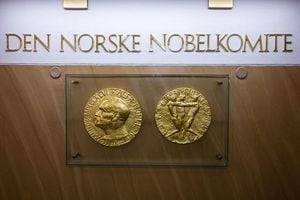The luxury real estate market is witnessing significant shifts as we move toward 2025, with trends heavily influenced by sustainability and wellness. Homebuyers are now more concerned about how their living spaces reflect their values, particularly when it involves environmental consciousness and personal health.
Eco-friendly features have transformed from being novelty items to necessities within high-end properties. Nowadays, affluent buyers expect to find solar energy systems, water conservation measures, and even recycled materials integrated seamlessly throughout their homes. The design ethos aims to harmonize sustainability with aesthetic appeal, presenting a blend of responsibility and elegance. "High-end homes are finding ways to balance to sustainability with aesthetic appeal," reported by Prestige Hong Kong.
Alongside sustainability, the notion of wellness is becoming increasingly prevalent. The concept of “wellness homes” is redefining luxury, moving beyond simple amenities like home gyms to create holistic environments aimed at enhancing physical, mental, and emotional well-being. This includes private yoga studios, meditation gardens, saunas, and even ice baths—areas dedicated to relaxation and health. "These 'wellness homes' feature advanced amenities such as private yoga studios, saunas, ice baths, and meditation gardens," reported by Prestige Hong Kong. Such spaces encourage homeowners to prioritize their health within the sanctuary of their own homes.
Technology is another strong component of these luxury trends. Smart home innovations are setting new benchmarks for convenience and comfort. Beyond the expected virtual assistants and app-controlled elements, we are now seeing the introduction of AI-driven concierge services and predictive maintenance systems incorporated within luxury properties. Developments like Avadina Hills by Anantara feature eco-conscious technologies including solar panels and energy-efficient appliances, marrying modern convenience with environmental responsibility.
Branded residences continue to gain traction as buyers seek properties tied to esteemed names within hospitality, fashion, and lifestyle industries. These homes represent not only high-quality design but also the prestige associated with their names, fostering greater buyer interest. The allure of such residences lies not just within the physical structure, but also the lifestyle and reputation each brand promises.
The home-buying process has also evolved dramatically, thanks to advancements like Virtual Reality (VR) and Augmented Reality (AR). These tools allow potential buyers the flexibility to explore multi-million dollar properties from anywhere, enhancing engagement and expediting the transaction process. Prestige Hong Kong notes, “Virtual Reality (VR) and Augmented Reality (AR) are revolutionising the home-buying experience.” This evolution facilitates previously unimaginable levels of customization and immersion for buyers.
A significant liveable future is upon us as the luxury property market of 2025 aligns its offerings with the priorities of the new affluent buyers. This new wave reflects shifting values—prioritizing wellness, sustainability, and technological innovation—all without sacrificing luxury or exclusivity. Properties created with intention not only satisfy the current market demands, but likely also shape the trends for years to come, making modern luxury synonymous with responsibility.



